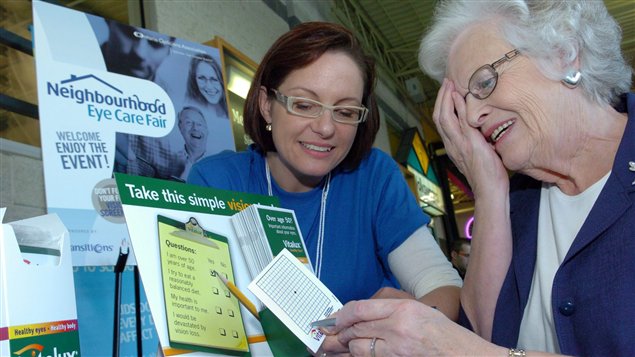Current technology permits eye doctors to detect eye disease too late to prevent damage, but new camera technology could soon provide early signs of disease which could be treated. “We’re always a bit behind the disease,” says Jean-Daniel Arbour, retinal surgeon and chairman of ophthalmology at the University of Montreal. “We can see the changes on our screen after the damage has been caused.”

Eye disease increasing
In Canada more than one million people have some degree of macular degeneration which can lead to blindness. Some 2.5 people have diabetes and about half of them will develop retinopathy. The cases of eye disease are expected to increase dramatically as a large chunk of the population gets older and the incidence of diabetes increases.
Space camera developed for human application
A company that developed a camera for use in space approached Arbour and asked if it could be used to look at the human eye. Arbour was intrigued. The camera can capture all wavelengths on the spectrum which makes it easier to see abnormalities early on.
Testing has provided some promising results which Arbour plans to publish this year. It will take some years more before the camera can be routinely used for early detection of eye disease in patients.







For reasons beyond our control, and for an undetermined period of time, our comment section is now closed. However, our social networks remain open to your contributions.